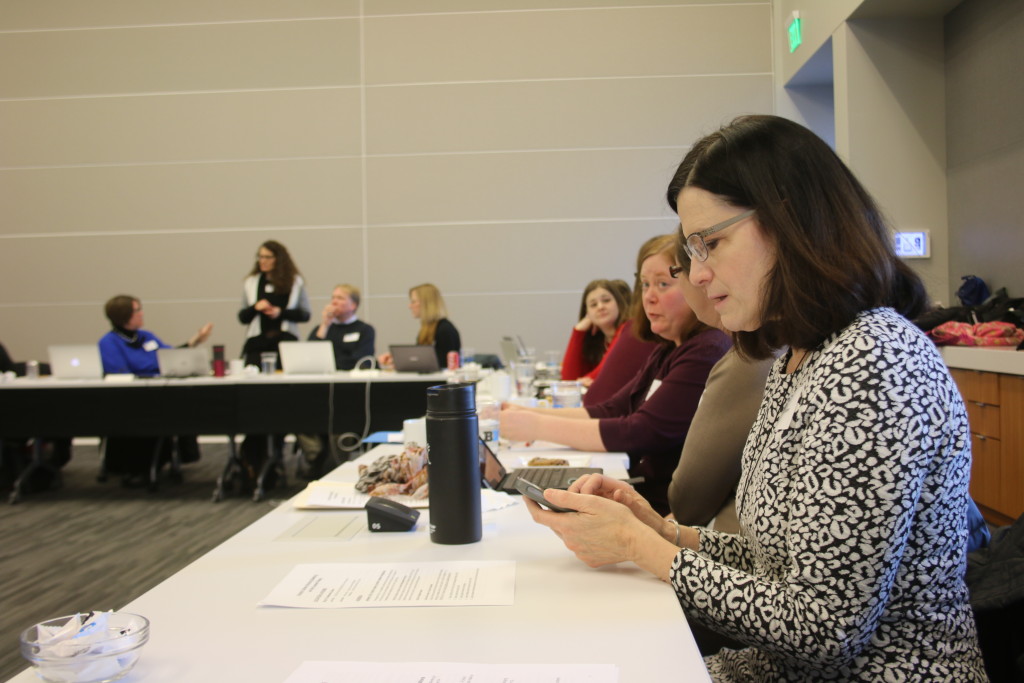Last week, librarians from Unizin’s member schools met with Unizin staff in Chicago to discuss common problems plaguing libraries. Their goal was to create a process for identifying and solving common problems encountered in supporting teaching and learning.
1. Libraries are Critical to Success
As a newcomer to the complicated world of library systems, my number one takeaway wasthat Unizin needs an engaged library community. Supporting the various content needs of teaching and learning practices requires the expertise and involvement of our libraries. During our discussions, we realized that while some of our assumptions about the content needs of teaching and learning were correct, others missed the mark. Having a library community to help Unizin sharpen its understanding of content problems will be invaluable.
2. Libraries Want to be More Involved
As we listened to librarians explain the current state of content in teaching and learning, we heard many people express the desire for libraries to innovate and experiment with new content capabilities inside the teaching and learning domain. In addition to being a physical place to study or conduct research, libraries want to integrate their services within the LMS system. One attendee suggested including links to library resources in courses that require research papers. The group also suggested identifying highly utilized and successful instructional content through LMS archives – not unlike the Open Syllabus project detailed in a recent New York Times article.
3. The Metadata Debate
Of course, the key to cataloging and finding great content is metadata. Librarians are interested in learning more about the instructional content faculty are using. A recent survey by LRMI found that 87% of educators are in the dark about tagging efforts, meaning automating this process is critical to providing these insights. Agreeing on the problem metadata should solve is the first step to solving the larger problem. If the goal is finding content through a search, then metadata should describe the object itself. But if the goal is to discover how an instructor in a particular class is using content, metadata should describe the context around the object. Problems will continue to be defined as Unizin and the library community experiments and refines the capabilities we would like to have. Unizin can help in this area by supporting new efforts or scaling current ones. For example, Oregon State University is beginning to catalog instructional materials by identifying standards and properties and creating controlled vocabulary.
4. Hosting versus Linking
There is a divide in the library community as to whether Unizin’s content relay should be a repository or a “referatory.” While hosting content is more reliable, it requires constant updating and management. On the other hand, links to content can break and end up pointing a user to something that doesn’t exist. We don’t have all the answers yet and we look forward to working with the library community to solve this logistical puzzle in future meetings.
Most importantly, Unizin learned that while all the solutions haven’t presented themselves, we have identified steps we can take together to identify common problems. Unizin and members of this library community will collaborate on “experiments” to provide a sharper image of these pain points. Subject-matter experts at Unizin’s institutions provide crucial guidance to ensure health and reach of Unizin’s solutions and we’re excited to begin the conversation with our library community.
Support teaching and learning with innovative approaches to content. Email etiennepelaprat@unizin.org to join the community.
Photo: Oregon State University Associate Professor and Engineering Librarian, Margaret Mellinger, gathers with fellow librarians at Unizin’s first Library Summit.

